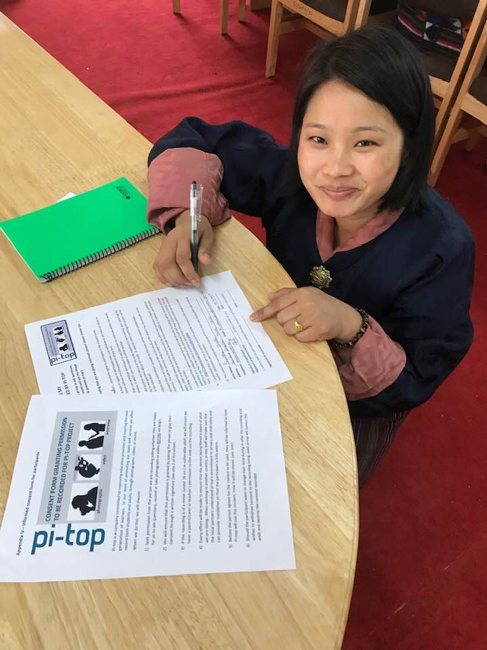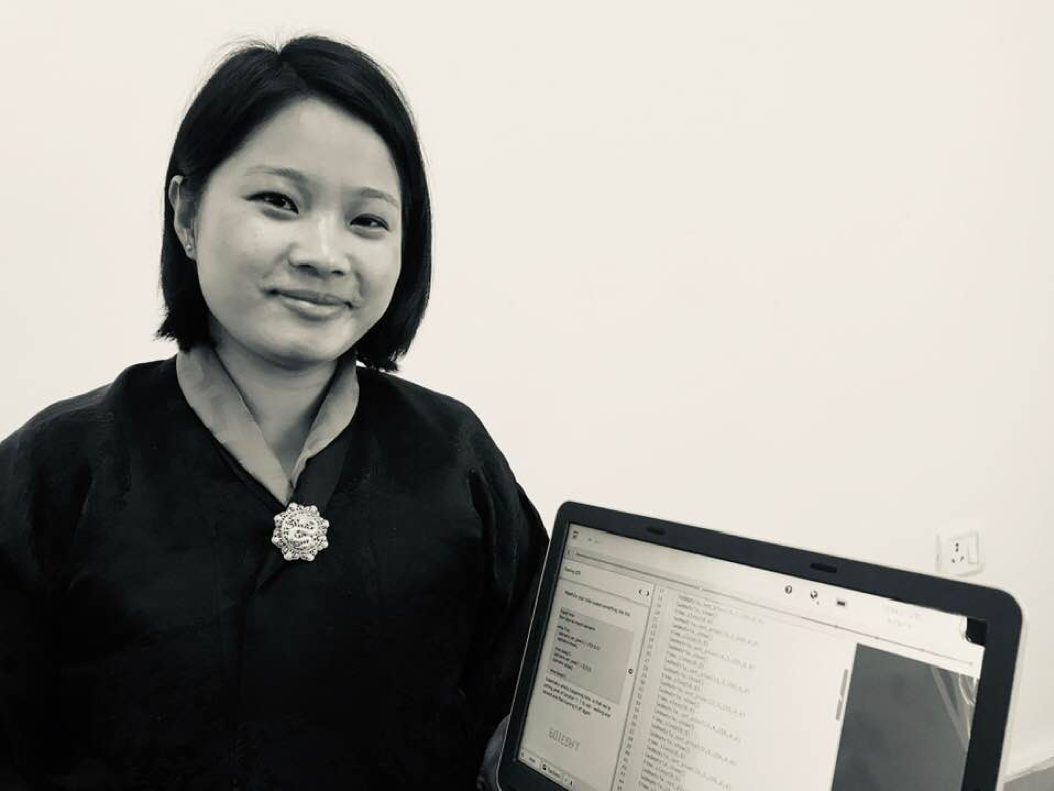Twenty-eight-year-old Phuntsho Choden is one of 22 trainees on the UNICEF - funded 'train the trainers' programme which is empowering teachers to use the pi-top tools and education philosophy in 10 Youth Centres opening across Bhutan.
The following case study was produced by Stephen Carrick-Davies, working in Bhutan overseeing the Bhutan pi-top programme.
Phuntsho Choden always dreamed of being able to make a difference to young people in her native Bhutan. When her father retired from being a geography teacher, Phuntsho followed in his footsteps and having completed her bachelor’s degree in Arts from the Sherbtse College in Bhutan, enrolled with the Royal Government of Bhutan’s Education ministry to train to become a teacher.
“When I attended school there were no computers, and the first time I ever saw one was when I went to college, however as an art major I never dreamed I could undertake a course in coding and using technology to change the world!” She exclaims when I met her in Bhutan.

After five years of teaching, Phuntsho is now one of 22 young people undertaking training to be ready to work in ten new youth centres which the Government of Bhutan, in partnership with UNICEF and and FABLAB Bhutan are developing across the country. Phuntsho explains, “the main goal of these Youth-Friendly Integrated Service Centres is to provide additional educational and training opportunities and to facilitate access to information in respect of employment opportunities, health information, and to other services, including entrepreneurial guidance. Especially to those young people who have dropped out of school or who have additional needs.” She continues, “sadly some of the young people in Bhutan are becoming disillusioned and are dropping out of school, turning to drugs and alcohol and many just don’t want to memorise learning simply to take a test at the end. No, they want to engage and learn in more practical things and enjoy using their hands, - painting, drawing, and computers.” And that’s where pi-top comes in. With her new found skills and confidence, Phuntsho wants to engage young people in learning how to use computers not simply as a medium to consume content but to help young people learn to code and start to create their own content and new projects. This she believes will “spark” their interest and desire to learn new skills.
And she’s right, for many young people now growing up as digital citizens the opportunity to change their destiny through computing and mobile technology is evident to see – even in a land-locked country like Bhutan. Indeed, Phuntsho believes that once youth are engaged and trained to use computers, they can gain valuable skills and become more critical thinkers, problem solvers and team players. Phuntsho goes on, “my heart pondered with immense joy and exultation, as I travelled for two days across mountains and valleys towards the capital of Bhutan, Thimphu to undertake the pi-top training. At first, I had a tough time understanding the concept of pi-top as I had never undertaken any programming before and was anxious. But Nanda and Stephen helped me see the value of these tools, and the training exercises were practical, and he helped all of us understand. If you don’t know it’s OK, we learnt together!”


The pi-top [3] computer is excellent for introducing both young people and teachers the importance of coding. You can open it up, pull things apart, attach wire and type in code instructions. “We get to see the results of our coding right away” Phuntsho explains, “we don’t have to wait for the result, on this course we’ve programmed a set of traffic lights, - (quite ironic as we have no traffic lights in Bhutan!), create a sensor to make a door alarm, and even programming a simple light show. I also learnt important skills like critical thinking, problem-solving and mostly collaborating with the teammates and bringing creativity to our designs. I would love to implant the knowledge I have acquired through the training to younger people back at my youth centre and know that giving them hands-on exercise they will become more motivated and we can together help to design new projects which could really make a great difference to Bhutan,” she tells me.
Out of 22 trainees on this first course 18 were women, and as the country seeks to promote the Sustainable Development Goals – especially Goal 4 – Quality Education and Goal 5, Gender Equality, it’s great to see that this theory is being put into practice, Phuntsho explains, “In these times, people tend to discriminate against women – especially in IT. But this project has shown us that the performance of women is very good; without realising it we are succeeding and are able to show other women that we too can use these tools and do a whole lot more. Now I want to show the world that it’s not only men who can be brilliant in using the technologies but also women like me.”
Over the course of the next three months the FABLAB Bhutan team will be training up to 300 youths across Bhutan in using pi-tops. We will be evaluating this project and sharing further news of the progress in later blogs.
Interview and write up by Stephen Carrick-Davies, Special Projects Lead pi-top.
